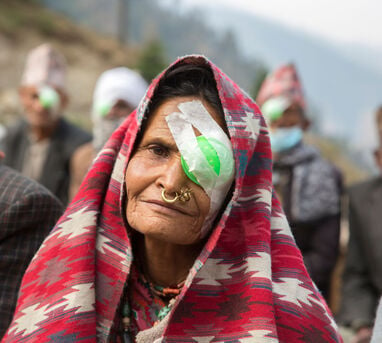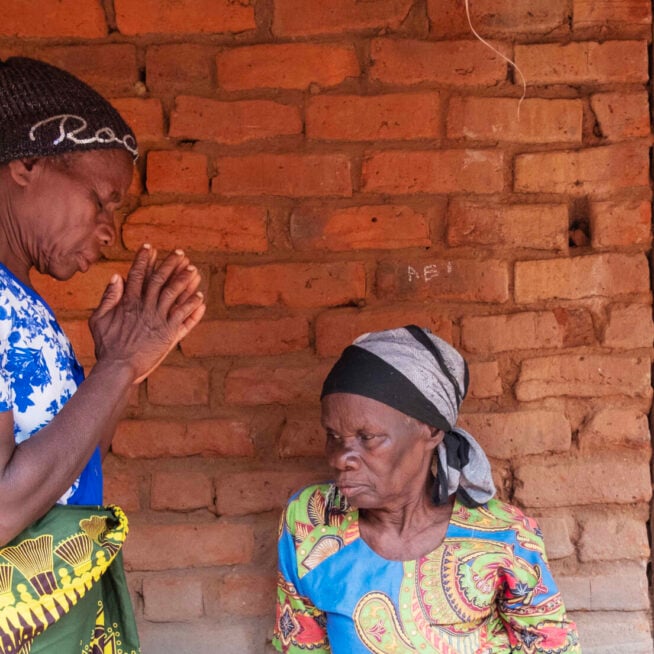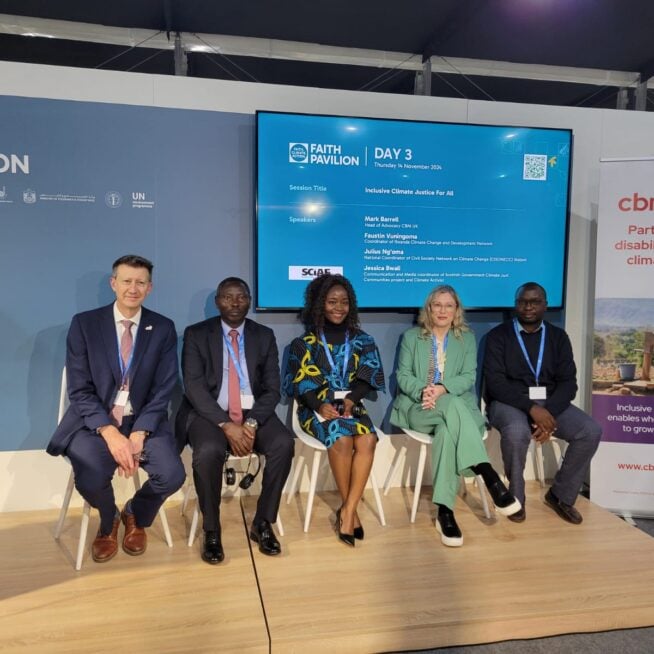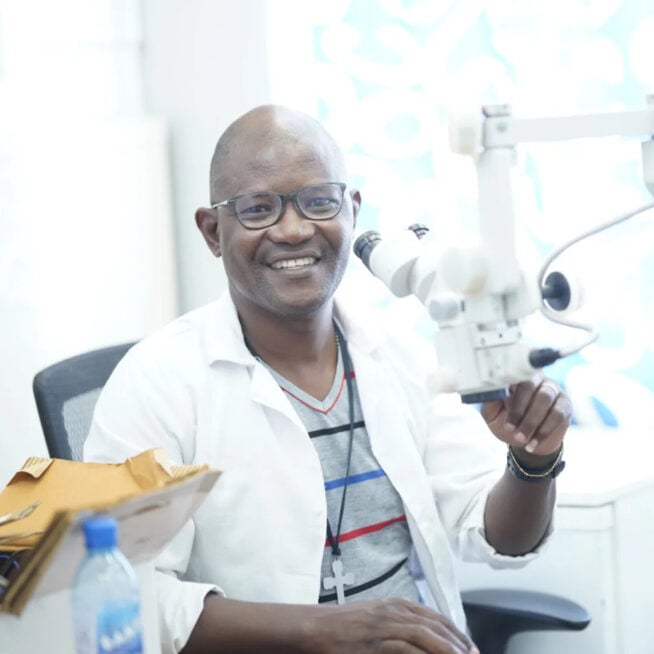As we look back on the Global Disability Summit 2025, we reflect on the summit’s achievements, our new commitments, and the need to defend disability rights in an uncertain world.
Reflections on the Global Disability Summit 2025: Amplifying Voices and UK Commitments
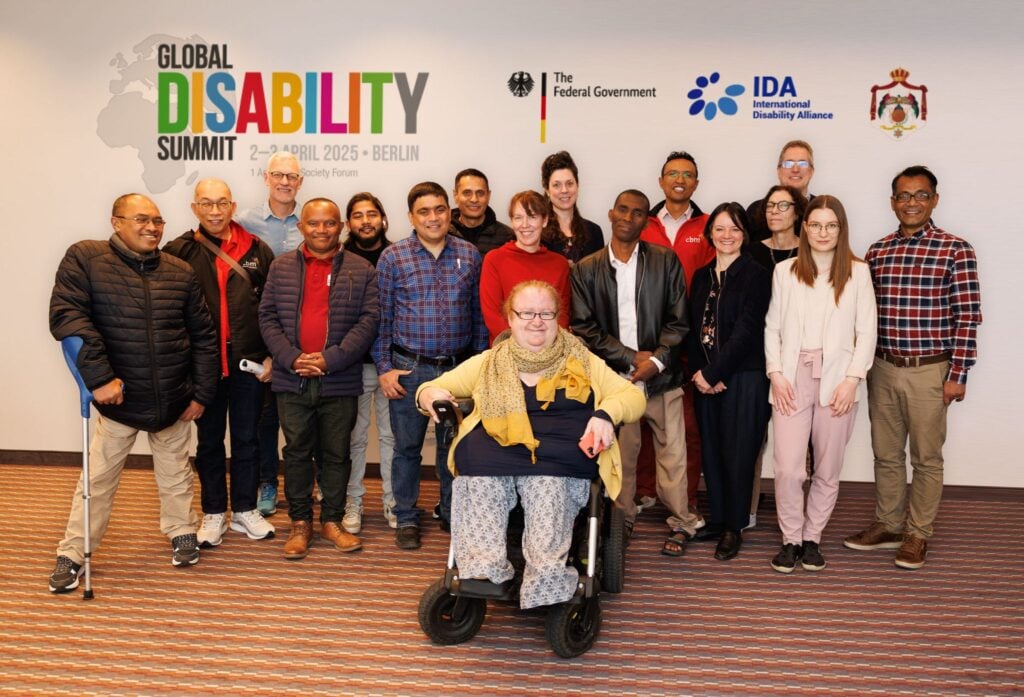
“We have made progress at this summit but there is a great deal more to do. We want everybody to have a fair opportunity to access and enjoy their human rights. This has to be a shared endeavour, we look forward in the UK to working with everybody in the room and many others towards that goal” – Sir Stephen Timms MP, UK Minister for Disability
The Global Disability Summit 2025 was bustling and productive, filled with organised and spontaneous meetings, greetings, and formal talks. After moving online in 2022, it was wonderful to be in person in Berlin, fostering alliance building and exchanging ideas among international, regional, and national representative Organisations of Persons with Disabilities (OPDs), civil society, bilateral and multilateral donors, and other international agencies. CBM Global supported several OPD partners to attend alongside our own delegation and, with over 4,700 other delegates from nearly 100 countries present, the potential to advance agendas on disability inclusion at all levels was significant. Sector wide engagement with lived experience is the essence of the GDS, and we were delighted that some OPD partners presented their work at booths, and participated in side-events and plenary discussions, attracting much interest in their perspectives to full rooms of delegates.
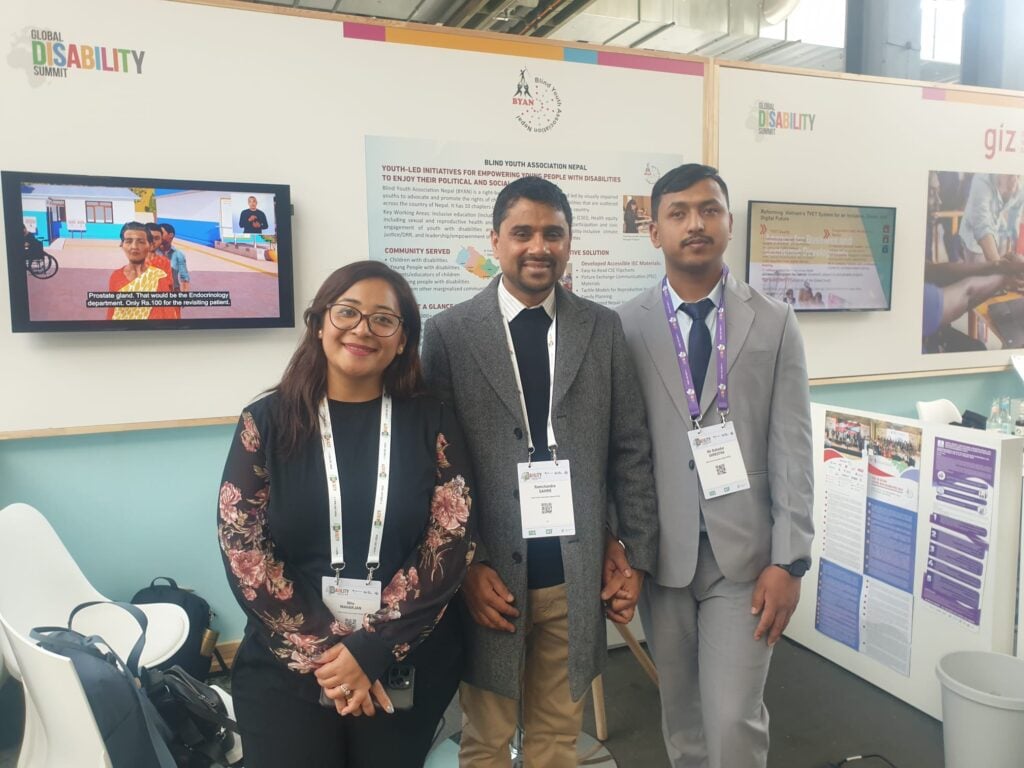
Although it was encouraging to see many OPDs playing a part at the summit, it was disappointing that despite formal invitations from the governments of host countries Germany and Jordan, and receiving full funding to attend, some partners were refused visas. The loss of important voices was concerning, especially as aid cuts, shrinking civil society space, and a roll back on equity, diversity and inclusion (EDI) pose a threat to disability rights. A collective declaration to the GDS called for actions that protect and promote disability rights and inclusion through these troubling times.
Formalities and Forward Movement: What Progress Have We Made?
At the heart of the GDS is the Commitments Mechanism, alongside the Amman-Berlin Declaration which 90 governments and organizations endorsed during the summit.
The UK government delegation included the Minister for Disability and Social Security, The Rt Hon Sir Stephen Timms MP. The Foreign, Commonwealth and Development Office (FCDO) committed as incoming co-chair of the Global Action on Disability (GLAD) Network to drive global partnerships for disability inclusion, and to launching an Assistive Technology Investment Vehicle through their AT2030 programme which aims to raise $60M by 2026. It was a pleasure to meet Minister Timms during the summit in our role with the Bond Disability and Development Group. He highlighted the UK’s ongoing commitment to mainstreaming disability inclusion in international work while supporting targeted initiatives. We were reassured to hear that FCDO will integrate learned lessons from previous aid cuts into management accountability processes, with a promise of an equalities assessment process underpinning decisions around current aid cuts to mitigate against disproportionately impacting the poorest people, including people with disabilities.
The Scottish Government delegation also included high level representation, with Minister for Equalities, Kaukab Stewart MSP speaking passionately about Scotland’s commitment to supporting disability inclusive climate action. The Scottish Government specifically committed to ensuring that the disability community is platformed and listened to in the fight for climate justice.
We are proud that CBM Global Executive Director, David Bainbridge, was selected to present at a full plenary, alongside Minister Timms, to highlight one of our commitments, identified as a “top” commitment by the GDS hosts. This recognition underscores our bold commitment to shift power to local partners and communities, particularly to OPDs. Our full commitments can be read in our Commitments report.
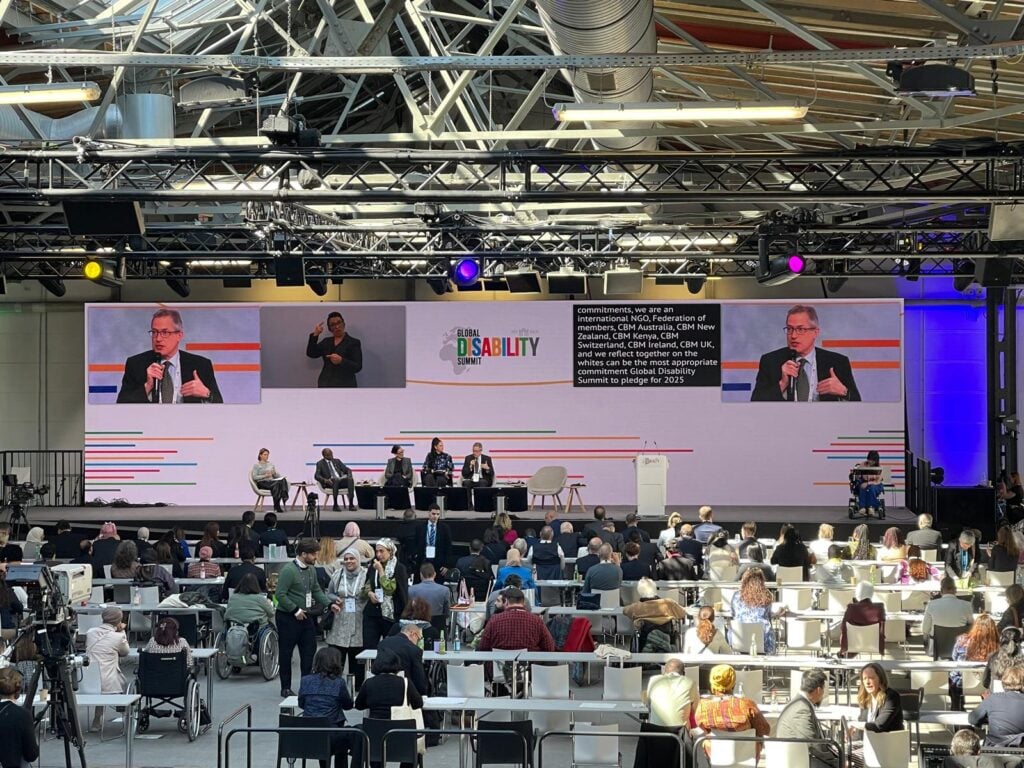
Beyond Commitments: What Lies Ahead?
The Declaration called for a 15% for 15% target with endorsing countries and organisations committing to ensure that at least 15% of their international development programmes implemented at the country level will pursue disability inclusion as an objective. This seeks to establish, for the first time, a quantifiable target for disability inclusion at a global scale, with the aim to achieve this by the fourth GDS in 2028. However, we remain in uncharted territory, and with aid budgets being cut globally, many organisations present at this year’s GDS may not survive to the next Summit. While this feels overwhelming, it underscores the importance of holding duty bearers accountable for their commitments in order to further the rights of people with disabilities.
OPDs play a key role in tracking progress, ensuring accountability and commitments leading to real, measurable change. But it is not the responsibility of OPDs alone; we all have this responsibility to keep ourselves and our governments accountable. Positive collaborative developments are happening to set minimum standards and shape clear guidance. We understand that without monitoring, there is no impact, and CBM Global has been at the forefront of efforts to of tracking inclusive aid with OPDs.
In many ways the GDS25 was held in a bubble – of passionate, like-minded people and institutions determined to drive forward positive change – at odds with wider dynamics of change. However, many of us left with renewed vigour and a sharpened sense of purpose.
GDS is a wake-up call for many, galvanising us as an active force to drive disability rights in development and humanitarian action and unite us through these tough times.
Header: The CBM Global delegation at the Global Disability Summit
